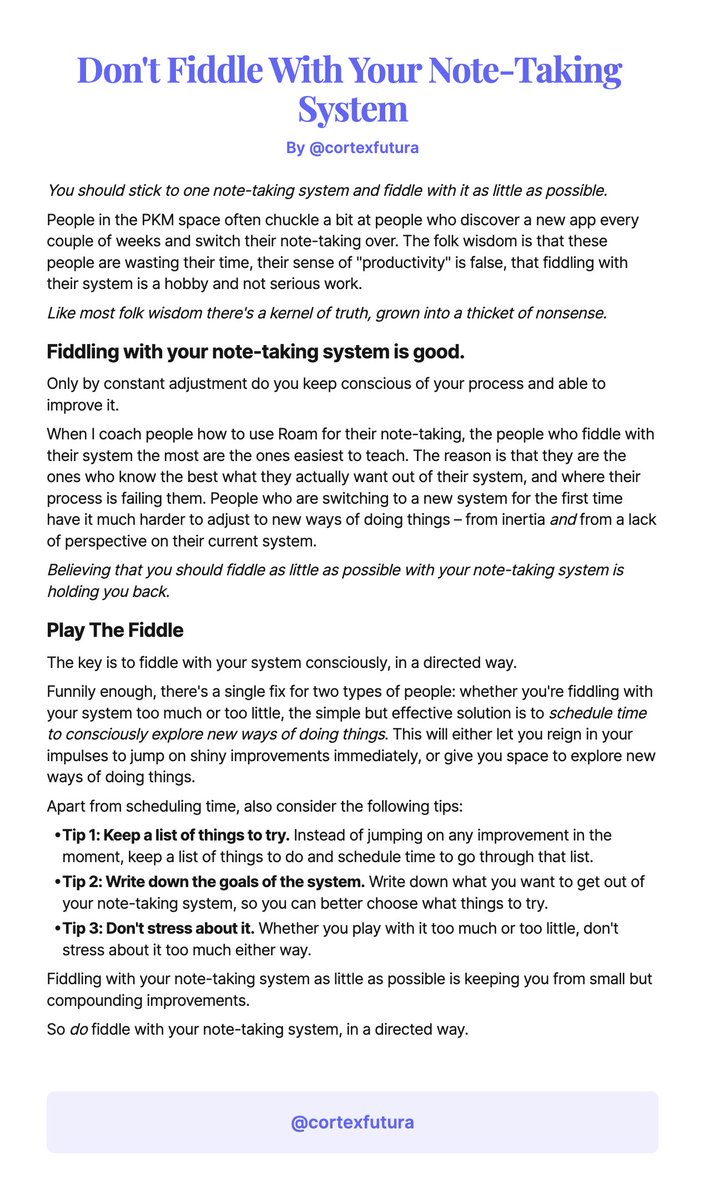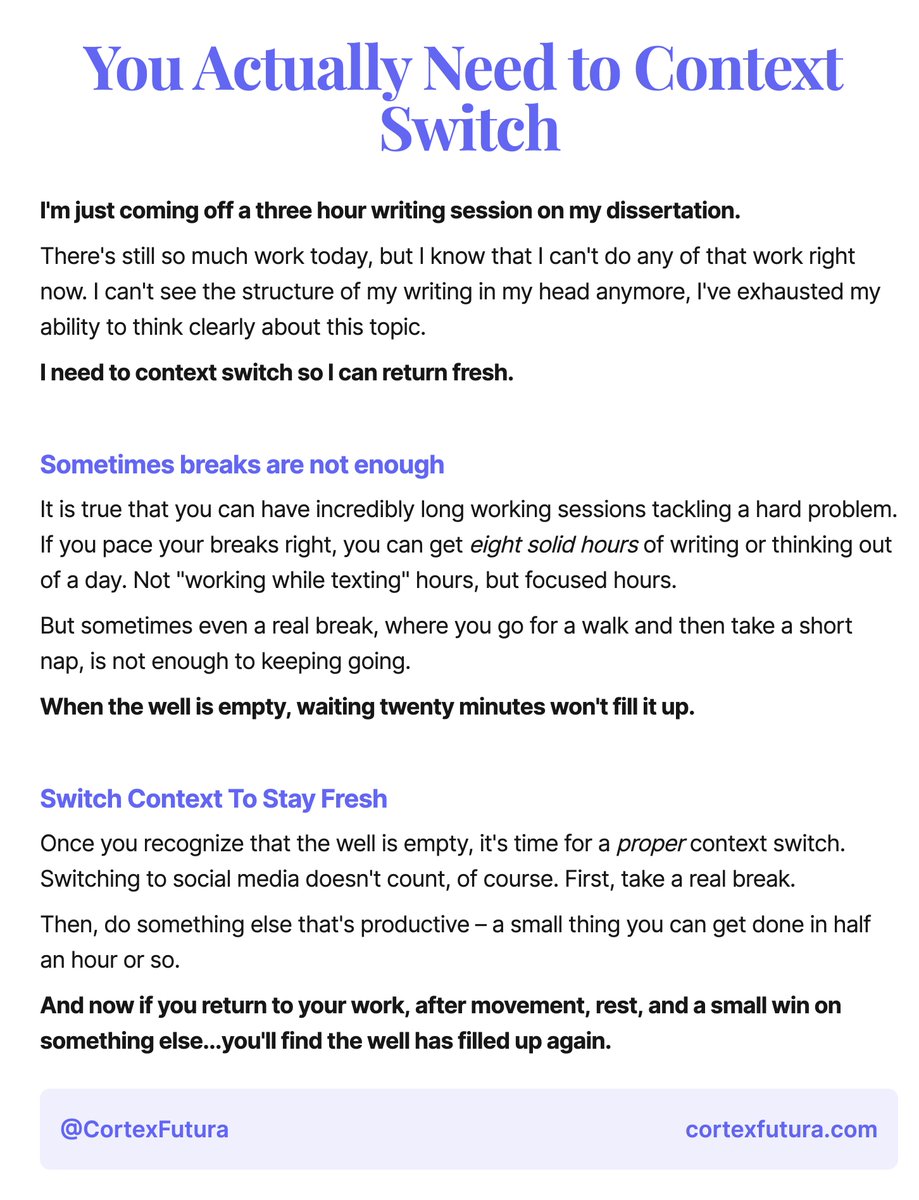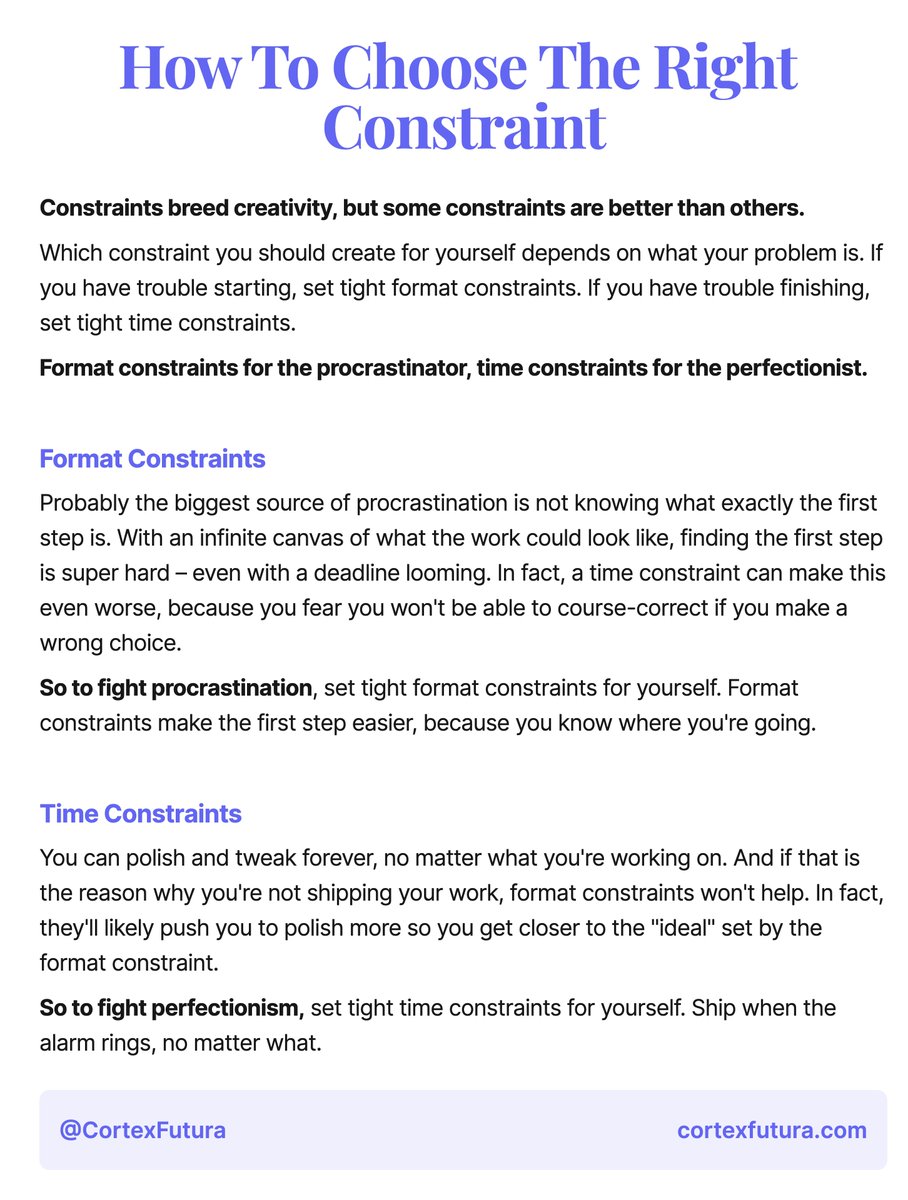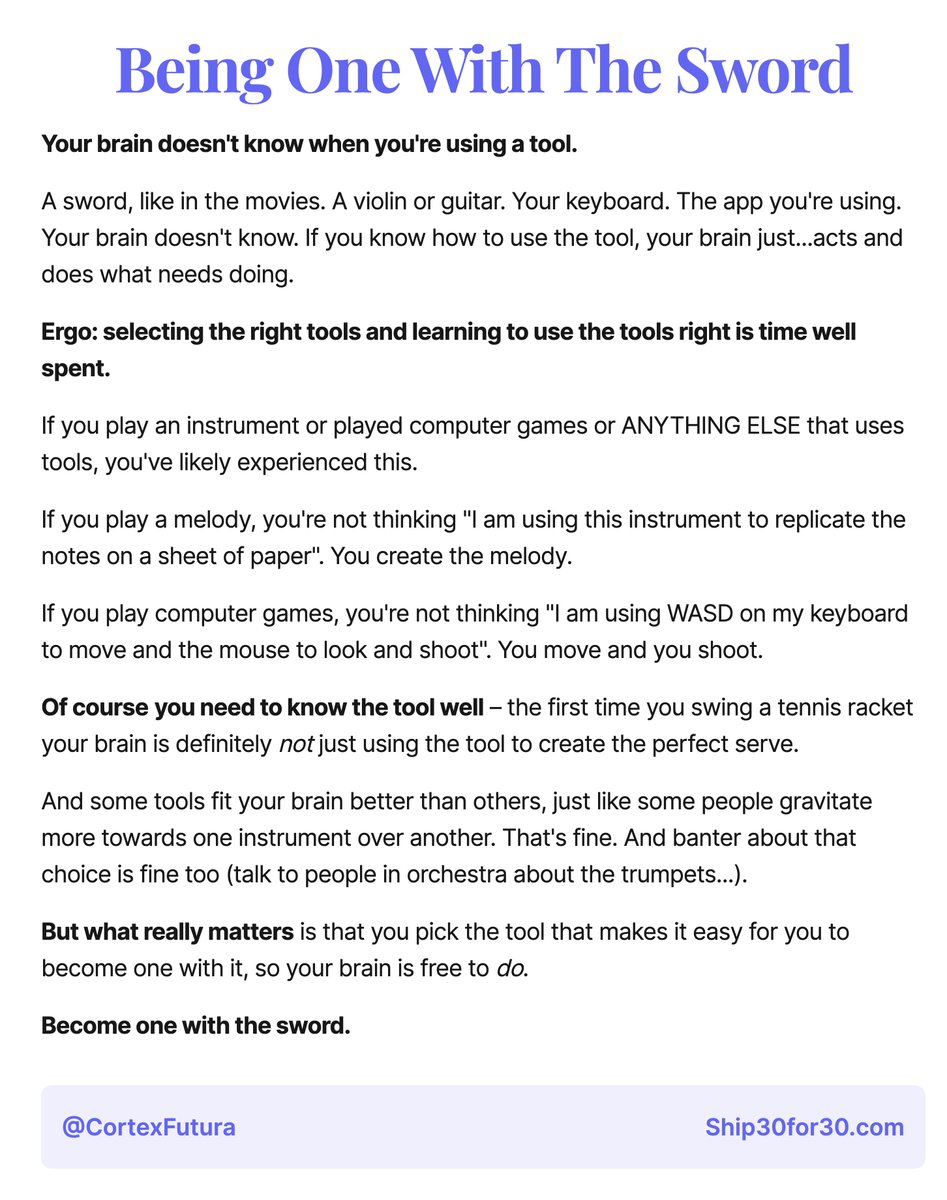
Sadly, Constraints Are Real
For the last 15 years I've ignored one fundamental truth: real constraints exist.
For the last 15 years I've ignored one fundamental truth: real constraints exist.

Distorting reality in this way has had its benefits – I would not be writing here if it hadn't. But failing to acknowledge the reality of some constraints has set me up for continuous self-doubt and anxiety purely of my own making.
Most social constraints are fake, but physical constraints are real.
Looking at the real constraints hurts, but it hurts less than a groundhog day of disappointments.
Looking at the real constraints hurts, but it hurts less than a groundhog day of disappointments.
Time and Energy are the Fundamental Constraints
And ignoring them will set you up for failure over and over again.
And ignoring them will set you up for failure over and over again.
Over your ~16h of waking time each day you have only a certain amount of energy. Sounds obvious, but I have ignored this basic feature of reality more times than I can count. You can cheat by borrowing time and energy from tomorrow by using caffeine or other stimulant of choice.
But at the end, __the accounts will be settled for you__ – you'll just be more tired tomorrow and feel like you're treading water.
To prevent that, here's what I'm doing right now:
To prevent that, here's what I'm doing right now:
Make a list of everything.
To budget time and energy, you need to know what's on your plate __plus__ everything you __want__ on your plate.
To budget time and energy, you need to know what's on your plate __plus__ everything you __want__ on your plate.
So over the next three days, set a timer for 30 minutes each day, and dump every single thing in your life that takes time and energy, __plus__ everything you want to spend time on. Do it over multiple days so you really get everything – that's important.
Filter the musts.
There are things that are not negotiable, and you need to know what they are so you can get a picture of the time you have left for everything else.
There are things that are not negotiable, and you need to know what they are so you can get a picture of the time you have left for everything else.
Sleep is a must. Eating is a must. Personal hygiene is a must. Movement is a must. What else, and how much time does each thing take? Write it down.
Balance the books on everything else.
Once you know your musts and the time they take, look at everything else. To quote Ray Dalio, you can have anything you want, just not all at once. This is the hard part: ordering what is more important and leaving the less important behind.
Once you know your musts and the time they take, look at everything else. To quote Ray Dalio, you can have anything you want, just not all at once. This is the hard part: ordering what is more important and leaving the less important behind.
Accepting that real constraints exist is hard, but after 15 years of ignoring them and suffering for it, I think that looking them straight in the eye is actually...liberating.
• • •
Missing some Tweet in this thread? You can try to
force a refresh








